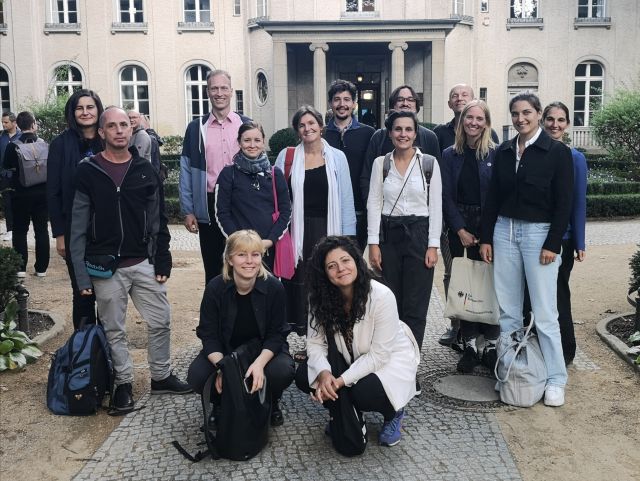Bundesarchiv Hosts EHRI Archival Seminar "Modern Diplomatics of the Holocaust"
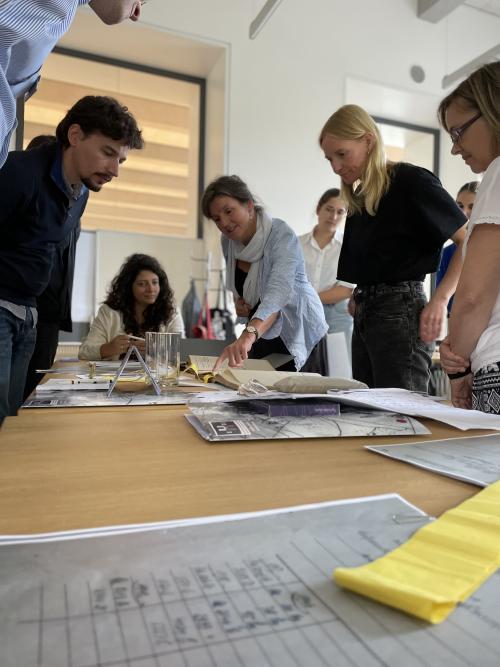
Reading Documents Beyond, Between and Within the Lines
By Dora Komnenovic, Bundesarchiv
From September 10-15, 2023, the German Federal Archives (Bundesarchiv) hosted the five-day EHRI archival seminar "Modern Diplomatics of the Holocaust" at its branch in Berlin-Lichterfelde. Following a competitive call for applications, twelve participants from Europe, Israel and the United States were invited to participate in the event, which was organised for the second time since 2016.
Over the five days of the programme, the attendees were introduced to the German administrative tradition and critical document analysis, i.e. diplomatics as an auxiliary science of history. What might seem as a rather "dry" topic at first glance has nevertheless managed to impress, as one of the participants remarked:
"It's been a while since I had a week such as this one at the EHRI archival seminar. It opened a whole new world to me!"
The facilitators, including experienced archivists from the Bundesarchiv as well as Holocaust researchers, provided those attending with an overview of Holocaust related records including administrative, personal and military documents, and photographs preserved at the Federal Archives. They also presented some analytic tools aimed at interpreting not only the documents’ content, but also their equally important makeup and articulation. Reconstructing in detail the process of conceiving and making of documents, letters and decisions that led to the prosecution and murder of Jews during the Nazi period helps to define responsibilities and individual contributions within the German bureaucracy. Towards the end of the seminar the attendees had the opportunity to apply their newly acquired knowledge in an extensive practical exercise with original documents held by the Bundesarchiv.
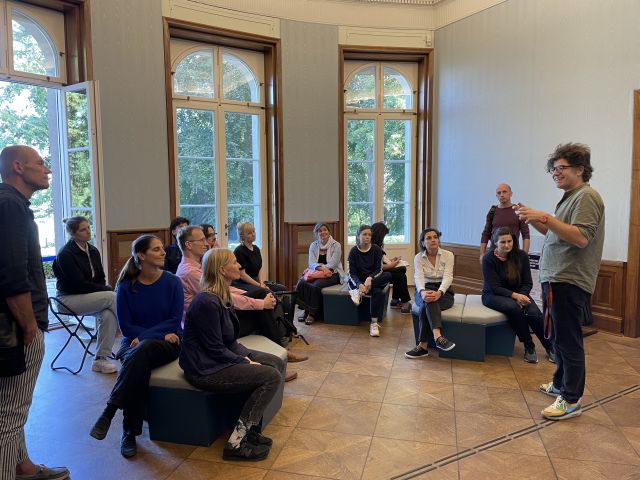
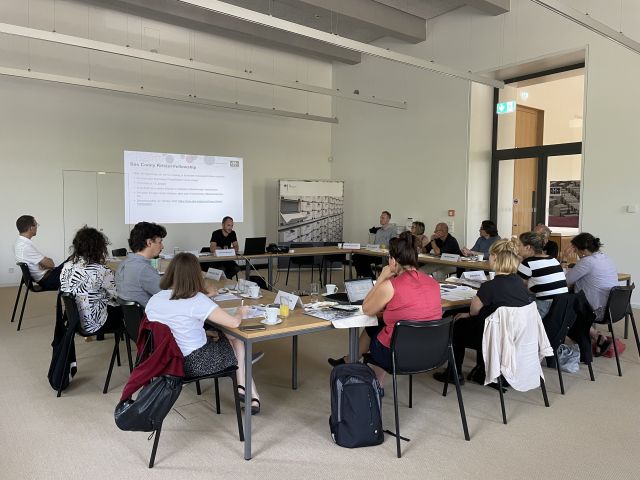 The twelve participants actively contributed to the seminar by presenting their own work on topics such as the long-term effects of forced sterilization and castration experiments in National Socialist camps; the treatment of Jewish refugees in Switzerland; an exhibition on the Frankfurt Auschwitz Trials; a digital memorial to Holocaust victims from Velké Meziříčí; and the Memorial Archive at Flossenbürg. Directed at archivists, scholars and employees of museums and memorials, the seminar also offered everyone present the chance to draw parallels between the archival and museum landscapes of the participants' countries of origin and employment including Austria, Germany, the Czech Republic, Hungary, Russia, Serbia, Switzerland and the United States.
The twelve participants actively contributed to the seminar by presenting their own work on topics such as the long-term effects of forced sterilization and castration experiments in National Socialist camps; the treatment of Jewish refugees in Switzerland; an exhibition on the Frankfurt Auschwitz Trials; a digital memorial to Holocaust victims from Velké Meziříčí; and the Memorial Archive at Flossenbürg. Directed at archivists, scholars and employees of museums and memorials, the seminar also offered everyone present the chance to draw parallels between the archival and museum landscapes of the participants' countries of origin and employment including Austria, Germany, the Czech Republic, Hungary, Russia, Serbia, Switzerland and the United States.
"This seminar has made me realise the real, core importance of EHRI and the connections & knowledge production it provides," wrote one of the contributors to the event.
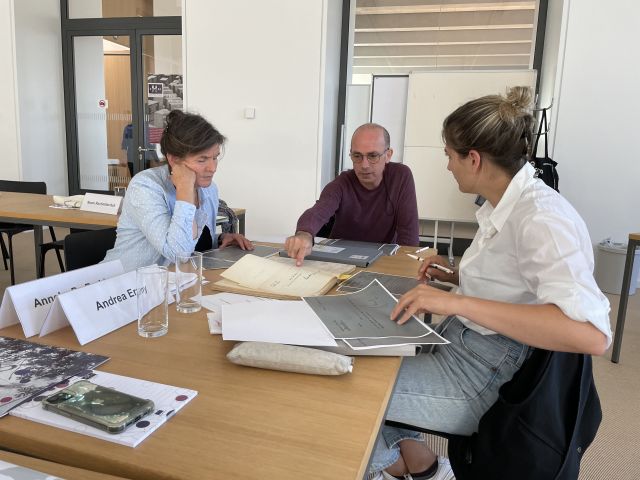
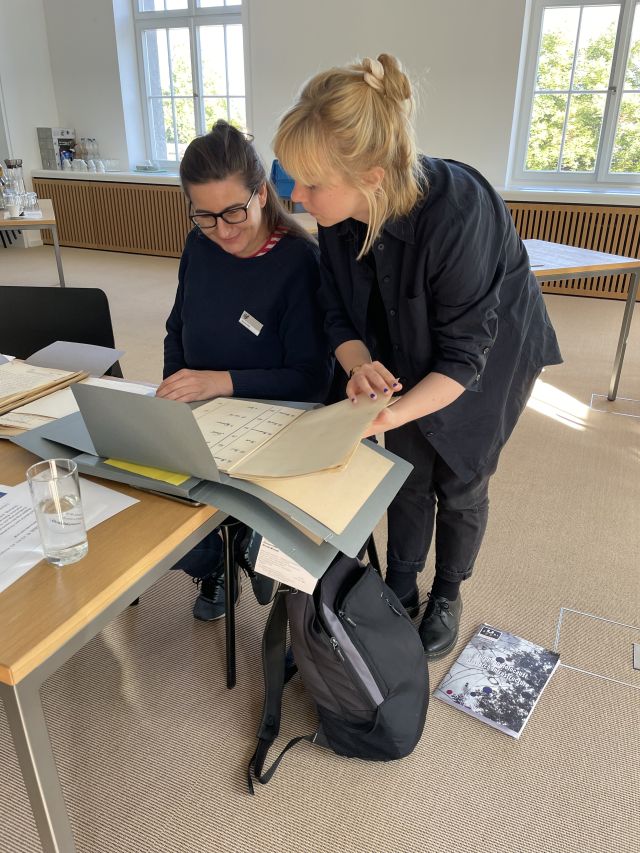
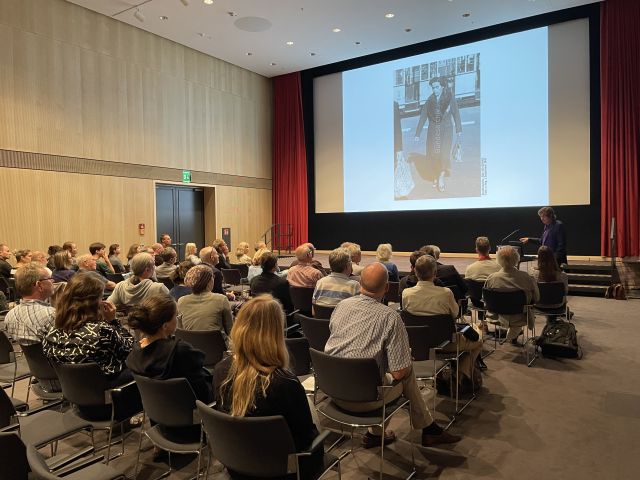 Besides thematizing work with archival sources and document analysis, the seminar programme was complemented by local memory culture visits to the Topography of Terror and the House of the Wannsee Conference, as well as a tour of three memorials to the victims of National Socialism in Berlin. A walk in Lichterfelde went past some of the Stumbling Stones (Stolpersteine), the largest (global) Holocaust memorial in the world. In addition, a public lecture on the Holocaust in Berlin, Berlin und der Holocaust by Dr. Christoph Kreutzmüller, offered a larger audience the opportunity to learn more about the darkest chapters in the history of the city.
Besides thematizing work with archival sources and document analysis, the seminar programme was complemented by local memory culture visits to the Topography of Terror and the House of the Wannsee Conference, as well as a tour of three memorials to the victims of National Socialism in Berlin. A walk in Lichterfelde went past some of the Stumbling Stones (Stolpersteine), the largest (global) Holocaust memorial in the world. In addition, a public lecture on the Holocaust in Berlin, Berlin und der Holocaust by Dr. Christoph Kreutzmüller, offered a larger audience the opportunity to learn more about the darkest chapters in the history of the city.
The rationale behind this archival seminar and, by implication, of the different EHRI formats and network as a whole was poignantly summarized by a seminar participant:
"Go on with your important work and education on the Holocaust & antisemitism, especially in these times of rising nationalism and right-wing political parties".
We certainly will.
